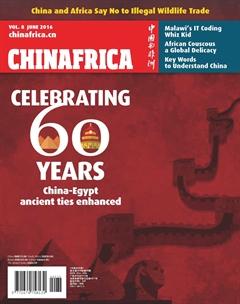Digital Transformation
ENABLING Africa to boost its digital economy and drive profound structural transformation.
That was the empowering message at this years 26th World Economic Forum (WEF) on Africa held in Kigali, Rwanda in May, on the theme “Connecting Africas Resources Through Digital Transformation.” It was a theme that encapsulated the East African nations ambitions of being able to host prestigious international events, invest heavily in information and communications technology, and strive to be a knowledge- and services-based economy by 2020.
The WEF has sent out a strong signal of optimism and confidence by holding the forum in Africa, encouraging global observers to realize that investment opportunities do exist amidst the stereotype doom and gloom mantra suffocating the continent.
The 1,500 national, business and academic leaders attending the forum spent much of the three days discussing the need to adopt the Fourth Industrial Revolution, which is required to reform African economies and bring about better livelihoods for all.
“The Fourth Industrial Revolution builds on the previous ones which largely passed Africa by, [and] as a result, our continent barely registers in global value chains,” said Rwandas President Paul Kagame. Africa should not be still playing catch-up when the fifth revolution comes around, he added. Greater regional integration and investment in infrastructure, as exemplified by the East African Community, are also vital to achieving this aim.
While it is all well and good to have Fourth Industrial Revolution ambitions, with Africas perennial power shortages however, the digital strategies espoused by Kagame and other state leaders become dead in the water. The revolution will succeed only if graduates are equipped with the necessary skills to make the industrial transformation possible. This means the digital reform of Africas education system, bringing more people online and encouraging entrepreneurial digital alignment.
To illustrate how much lack of digital access is restricting Africas digital economy, Googles Country Manager for Kenya, Charles Murito, told the WEF that after his company recently laid 800 km of fiber optic cable in Kampala, Uganda, there was an astounding 3,000 percent increase in the use of the Internet. But despite a spike in mobile connectivity on the continent, Murito said unaffordable Internet costs are still the Achilles heel of digitization.
Graca Machel, founder of civic organization Foundation for Community Development, reminded the WEF of previous African conferences which were nothing more than talking shop. “We need change now. We are very good at drawing up policies, but very weak at implementation,” said Machel, striking a nerve. On the issue of inequality, the wife of Nelson Mandela said in preparing for the Fourth Industrial Revolution there should be more focus on women, who, as the largest section of society, were left behind by past revolutions.
Ultimately, African nations need to up their game in attracting foreign investment, build infrastructure and attract those in the international community with the financial muscle to optimize the abundant investment opportunities on the continent. To some, even the 2016 WEF may have been just another place to talk shop, but pundits are optimistic that there is a greater urgency now to implement policies engineered to bring about more sustainable and comprehensive growth for Africa.

